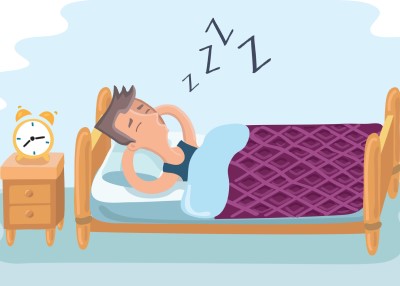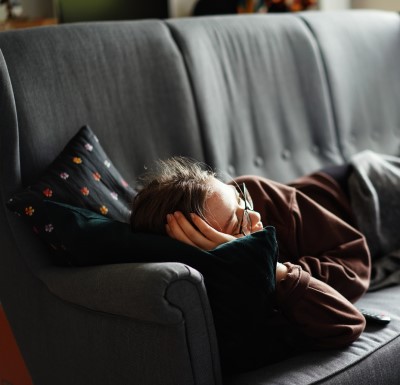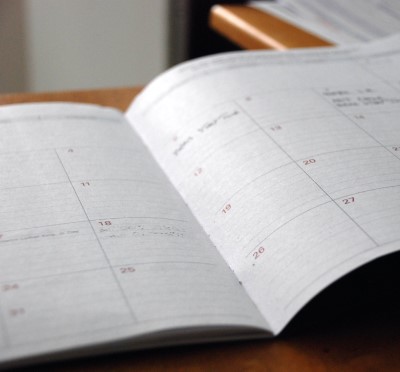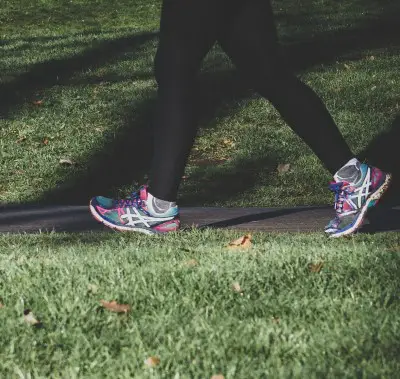
How to stay awake in a Zoom online class – 19 things beside caffeine you can try
By Jason Wooden, PhD | August 27, 2021
If you struggle to stay awake during Zoom online classes, there are plenty of things you can try besides caffeinated beverages.
Your options include better sleep, natural daylight, staying hydrated, energy boosting snacks, adjusting your class schedule, and a variety of practical remedies.
If day time fatigue has become an ongoing issue for you, it’s worth seeing a doctor to check for underlying health issues which may be making it harder to stay awake.
You’re likely not the only one struggling to stay awake during a Zoom class…
In 2020, the world changed during COVID as learning went online for millions of students.
While it’s great to hook up to class with Zoom from the convenience of your home, one of the challenges is staying awake during an online class.
In past years, as many as 30 percent of high school students were falling asleep in class on a typical day according to surveys. College students were just as bad with over 50 percent admitting to falling asleep.
That’s a lot of people struggling to stay awake.
And that was before COVID when everyone was in person.
I wouldn’t be surprised if the numbers are much higher now given how many more people are now online.
After all, you’re sitting in a room by yourself staring at a screen for hours on end with no in person interaction.
Given the change in routine and monotony, you’re likely not the only one who has drifted off at some point during a Zoom class.
There are all sorts of other reasons people struggle to stay awake. Regardless of why, there’s the annoyance of missing parts of the lesson and the real risk of embarrassment.
Is caffeine really your best and only option?
Obviously not.
Let’s take a look at some practical tricks that may help and what else you can do to make things easier.
20 things worth a try to stay more awake during an online Zoom class
If you’re struggling to stay awake during an online Zoom class, it should be clear by how common it is.
Fortunately, there are plenty of things you can do to ward off fatigue, stay more alert, and make the best of things.

1) Get more sleep
It’s hard to stay awake if you start out the day behind the eight ball on sleep. Sooner or later, your body is going to crash even after your favorite Latte or energy drink.

2) Take notes
It’ll keep your mind active, engaged, and help pass the time.

3) Participate
Another way to keep your mind active. Join in on a class discussion, ask and answer question.

4) Caffeine
Whether it’s tea, coffee, or an energy, it’s a popular remedy to fight fatigue and promote mental alertness.
Like anything, it’s important not to overdo it. Too much coffee can dehydrate you, make it harder to sleep at night, and lead to coffee addiction.

5) Get natural daylight
Since our bodies are in tune with day and night, a dim low-light room can lull you to sleep.
Try brightening things up with a lamp or natural daylight through the windows.

6) Make the most of your class breaks
Use the time to get up and move around to help clear your mind.

7) Change your position
Sitting still or standing for long periods can make you feel tired. It’s also not best for you ergonomically.
Try working in a stretch or adjusting your body positing periodically.

8) Stay hydrated
Fatigue can be a symptom of dehydration and dehydration can make it more difficult to concentrate.
As a healthier alternative to caffeine, try a glass of water.

9) Keep a stash of healthy snacks
Healthy snacks can help keep your blood sugar and energy levels steady. Avoid over sugary snacks that lead an energy crash hours later.
Instead, look for foods with a mix of protein, complex carbs, and healthy fats such as:
- trail mix
- hard boiled eggs
- fruit and nuts
- seeds
- raisins and peanuts
- fruit and peanut butter
- veggies and humus
- Greek yogurt
- beef jerky (without the added sugar)
- popcorn

10) Avoid large meals before class
Heavy meals can slow down your metabolism and make you feel sluggish. Try eating lighter at lunch.

11) Chewing gum
Studies have shown chewing gum can help improve alertness.

12) Peppermint
Essential oils like peppermint can help with fatigue and promote alertness.

13) Take a shower
Nothing is like a quick shower which can refresh and recharge you.

15) Keep it on the cool side
A warm room can lull you to sleep, especially after lunch. Try a cooler room temperature.

16) Open a window
Sometimes a little fresh air may do the trick…

17) Power naps
A quick snoozer before class can do wonders. Try sneaking in a nap between classes or over lunch.
Sleep experts say it’s best to keep your naps under 15-20 minutes so you don’t wake up in a brain fog. You also don’t want to be late to class, so set an alarm.

18) Avoid computer fatigue
Staring at a computer screen for hours on end can strain your eyes and be tiring. Be sure to take regular breaks.

19) Mix up your classes
Some classes are more engaging than others, trying mixing things up a bit so you don’t have the more tedious ones all together

20) Schedule classes for when you’re naturally more alert
If possible, morning larks may want to take most of their classes earlier in the day. Likewise, night owls might want to stick to the afternoon and evening.
Another idea is to schedule your most monotonous class for when you’re most alert.
Caffeine alternatives to help you stay alert while Zooming
While caffeinated beverages may help you stay more awake during an online Zoom class, too much of anything can become a bad thing.
As you load up on double espressos and high octane energy drinks, it can come back to bite you later at night and wreck your sleep.
The smallest energy drink sizes contains around 80 mg of caffeine. The typical cup of coffee contains about 95 milligrams of caffeine
Caffeine will make it harder at night to fall asleep, rob you of deep sleep, and cause more night time bathroom trips.
Also, there’s the very real risk of caffeine addiction which can lead to withdrawal symptoms.
The good news is that there are plenty of caffeine-free alternatives worth a try:

1) Sparkling water:
It gives you pop and fizz without the caffeine or sugar.

2) Flavored sparking water:
You can find fizzy water flavored with lime, strawberry, and many other flavors. You can also just add slices of your favorite fruit to a glass of fizzy water.

3) Coconut water:
A popular drink with natural vitamins and electrolytes.

4) Ginger root tea:
Ginger root has been linked to many health benefits. It’s believed to fight fatigue by improving blood circulation and blood sugar levels.

5) Chicory Coffee:
Available online and made from roasted roots of the chicory plant, it tastes similar to coffee but is caffeine free.

6) Rooibos Tea:
Slightly sweet and caffeine free, Rooibos tea is made from leaves of a shrub native to South Africa.

7) Protein shakes
Did you know that too little protein can cause fatigue? The body needs it for fuel to help repair and build tissues.

8) Golden Milk (Turmeric Tea):
Golden milk is a traditional Indian drink made with warm milk, ginger, cinnamon, turmeric, black pepper. Vanilla and honey is often added for a little extra flavor.
Learn more:
Golden milk recipe (easy)
Golden milk recipe (fresh turmeric root)
Make sure you’re getting the best possible sleep every night…
There’s more than one reason improving your sleep was at the top of the list of things you can do to stay awake in a Zoom class.
When you skimp on your sleep, staying awake isn’t the only issue you’ll have.
Your mind won’t work as well making it harder to focus and pick things up during a class. You also won’t perform on assignments and tests as well as you could.
That’s why you need to get the best possible sleep you can every night.
The good news is that there’s plenty of things you can do for sleep.
Watch your sleep hygiene:
There’s a long list of things that can cause problems for sleep. This makes it important to practice good sleep hygiene, the everyday habits that set the stage for deep restful sleep.
For better sleep hygiene, you should:
- keep consistent wake up & sleep times
- avoid naps
- exercise during the day
- avoid large meals, alcohol, or stimulants such as caffeine before bedtime
- maintain a regular bedtime routine
- avoid using TVs, laptops, or other electronics before sleep
- keep your bedroom dark, cool, quiet, & relaxing
Get a checkup:
One of the reasons you could be struggling to stay awake during your Zoom classes is because of health issues.
There’s things such as an iron deficiency that can directly cause day time fatigue. You may also be suffering from an undiagnosed sleep disorder.
If poor sleep has become an ongoing issue for you, it’s really worth getting a checkup.
Talk to someone:
Did you know there’s a strong link between depression, anxiety, and poor sleep?
Ongoing fatigue can be a sign of depression.
Unfortunately, depressed and anxious people have a hard time sleeping. Sleep-deprived people are more at risk for depression.
If you find yourself feeling down lately, it may be worth having a chat with your doctor or a mental health specialist.
Sources:
1. “Wake Up Calls (Fast Facts)”, Start School Later website
2. “New survey reveals over 50% of college students admit to falling asleep in class”, thetab.com
3. Effects and after-effects of chewing gum on vigilance, heart rate, EEG and mood, Physiology & Behavior Volume 133, 22 June 2014, Pages 244-251
4. “18 Essential Oils You Can Use to Boost Your Energy”, Healthline.com
5. “Caffeine: How to Hack It and How to Quit It”, Cleveland Clinic website
Connect with us:
About Us
Better Sleep Simplified® was founded as a place for you to get clear and well-researched information.
Our goal is to make sure you know about your options so that you take action sooner rather than later.
Check us out on YouTube:
Watch and Learn
Helpful sleep tips, interesting sleep facts and statistics you want to know about
Affiliate Disclosure
This site is a participant in the Amazon Services LLC Associates Program and other affiliate advertising programs designed to provide a means for sites to earn advertising fees by advertising and linking to them.
Important: BetterSleepSimplified.com is for informational purposes only and is not intended or implied to be a substitute for professional medical advice, diagnosis, or treatment. Always consult a physician for sleep and health concerns. See additional information.



